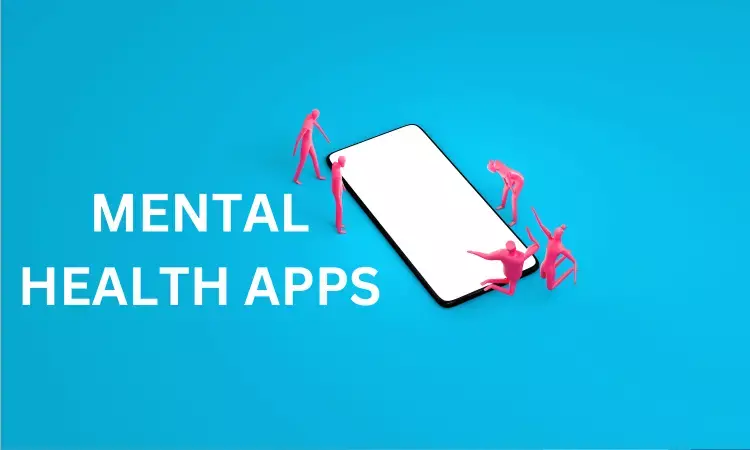- Home
- Medical news & Guidelines
- Anesthesiology
- Cardiology and CTVS
- Critical Care
- Dentistry
- Dermatology
- Diabetes and Endocrinology
- ENT
- Gastroenterology
- Medicine
- Nephrology
- Neurology
- Obstretics-Gynaecology
- Oncology
- Ophthalmology
- Orthopaedics
- Pediatrics-Neonatology
- Psychiatry
- Pulmonology
- Radiology
- Surgery
- Urology
- Laboratory Medicine
- Diet
- Nursing
- Paramedical
- Physiotherapy
- Health news
- Fact Check
- Bone Health Fact Check
- Brain Health Fact Check
- Cancer Related Fact Check
- Child Care Fact Check
- Dental and oral health fact check
- Diabetes and metabolic health fact check
- Diet and Nutrition Fact Check
- Eye and ENT Care Fact Check
- Fitness fact check
- Gut health fact check
- Heart health fact check
- Kidney health fact check
- Medical education fact check
- Men's health fact check
- Respiratory fact check
- Skin and hair care fact check
- Vaccine and Immunization fact check
- Women's health fact check
- AYUSH
- State News
- Andaman and Nicobar Islands
- Andhra Pradesh
- Arunachal Pradesh
- Assam
- Bihar
- Chandigarh
- Chattisgarh
- Dadra and Nagar Haveli
- Daman and Diu
- Delhi
- Goa
- Gujarat
- Haryana
- Himachal Pradesh
- Jammu & Kashmir
- Jharkhand
- Karnataka
- Kerala
- Ladakh
- Lakshadweep
- Madhya Pradesh
- Maharashtra
- Manipur
- Meghalaya
- Mizoram
- Nagaland
- Odisha
- Puducherry
- Punjab
- Rajasthan
- Sikkim
- Tamil Nadu
- Telangana
- Tripura
- Uttar Pradesh
- Uttrakhand
- West Bengal
- Medical Education
- Industry
Mental health apps provide Psychoeducation, goal tracking, and mindfulness but lack specialized therapies and privacy

Massachusetts: According to an original investigation published in JAMA, Psychiatry, researchers have concluded that though mental health apps offer basic features like Psychoeducation, goal tracking, and mindfulness, these apps lack innovative features like biofeedback or specialized therapies. Privacy challenges are common, and app popularity metrics provided few details in identifying apps with more privacy.
Many patients and clinicians are turning to mental health smartphone apps. These provide access to services. However, there needs to be more current information and the features, privacy, price, and services offered by these apps.
The main question here is What do mental health smartphone apps offer patients, how has the app landscape changed, and are app popularity metrics associated with privacy?
Investigating further, a study was conducted by Erica Camacho and colleagues to analyze mental health apps' (current state) association between the privacy score of the app and popularity measured by star ratings and downloads. The researchers also determined the opportunities and challenges the mental health apps faced.
The study summary is given below:
- Total of 578 mental health apps were reviewed in the study. These apps are rated across 105 dimensions.
- Apps included conditions like sleep, schizophrenia, eating disorders, etc. (sample of apps pulled data from M-Health Index and Navigation Database, MIND)
- In June 2022, an app analysis was conducted.
- Each app was assessed for origin and accessibility, security and privacy, foundation clinical, engagement, features, input and output, and interoperability.
- 5 MIND criteria determined privacy scores. Privacy policy, security measures in place, data use and purpose, data deletion, and opting out of data collection were included.
- Popularity metric determined by star ratings and the number of downloads.
- Researchers measured the correlation between privacy score and popularity metrics.
- The top app features were Psychoeducation, goal setting, and mindfulness.
- Four hundred forty-three apps constituting 77%, had a privacy policy.
- The analysis done by researchers found no statistically significant correlation between privacy scores and Apple App Store/Google Play Store star ratings.
- There was a weak correlation between Google Play Store app downloads and privacy scores.
To conclude and summarise, the study results suggest that apps on the marketplace offering overlapping features and metrics like star ratings or the number of downloads do not provide adequate information about privacy or efficacy of mental health apps.
Further reading:
Camacho E, Cohen A, Torous J. Assessment of Mental Health Services Available Through Smartphone Apps. JAMA Netw Open. 2022;5(12):e2248784. doi:10.1001/jamanetworkopen.2022.48784
BDS, MDS in Periodontics and Implantology
Dr. Aditi Yadav is a BDS, MDS in Periodontics and Implantology. She has a clinical experience of 5 years as a laser dental surgeon. She also has a Diploma in clinical research and pharmacovigilance and is a Certified data scientist. She is currently working as a content developer in e-health services. Dr. Yadav has a keen interest in Medical Journalism and is actively involved in Medical Research writing.
Dr Kamal Kant Kohli-MBBS, DTCD- a chest specialist with more than 30 years of practice and a flair for writing clinical articles, Dr Kamal Kant Kohli joined Medical Dialogues as a Chief Editor of Medical News. Besides writing articles, as an editor, he proofreads and verifies all the medical content published on Medical Dialogues including those coming from journals, studies,medical conferences,guidelines etc. Email: drkohli@medicaldialogues.in. Contact no. 011-43720751


